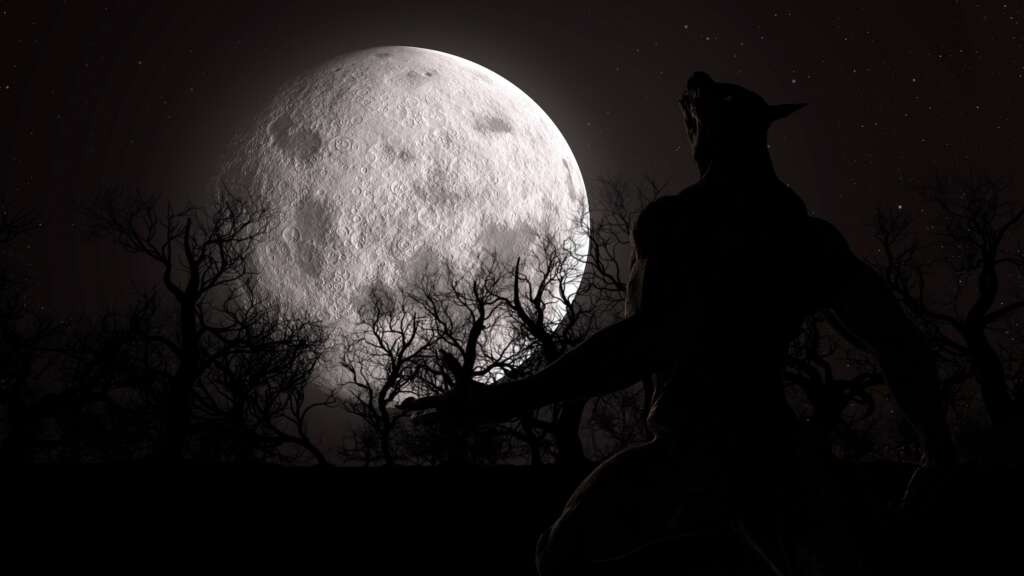Most people today understand that the Middle Ages were sometimes called the Dark Ages, because with the exception of some monasteries and later the emergence of universities, learning in Europe ceased around the time of the fall of Rome. In the absence of the scientific method and the rational approaches to discovery that we have today to explain causal relationships, covariation, etc. people turned to empiricism and fortune telling to bring order to their lives and while this period was certainly not the birth of superstition, it did prove to be fertile ground for superstition to take root. During the lifetime of Martin Luther, for example (in the early sixteenth century) astronomy had not yet been completely liberated from astrology, at least as far as Emperor Frederick II of Germany was concerned. The Emperor was a keen fan of astrology and he established astrology chairs at the major universities. One such chair was occupied by a friend of Luther named Philipp Melanchthon. An academician named Johannes Stöffler who was also an astrologer predicted a great flood would occur in February 1524. So many people panicked that fields were not tilled, crops not planted, and those who could afford to moved their families to high ground. No such flood occurred.
Back to the future?
But what may come as a surprise to many readers is the fact that in our world of unmanned aerial vehicles, nanotechnology, genetic manipulation and the perfect latte, people are as superstitious as ever. One sociological theory that has emerged says that in spite of the X-boxes, video on demand, cell phones and unfortunately the “sexting” that teenagers have access to today, technology is not very satisfying in terms of explaining the real facts of life. Sitting in front of a computer screen at 1:00 a.m. can be alienating in many ways. So, young people today (and adults as well) according to this theory are returning to common superstitious themes such as vampires and werewolves to provide for themselves what technology does not and cannot provide, and to secure personal protection against a crazy world in which they feel powerless and vulnerable. According to Medical News Today, “a quarter of adults in the U.S. consider themselves to be so, and recent trends reveal that younger people are more superstitious than older adults. In fact, 70% of U.S. students rely on good luck charms for better academic performance.” In fact, a 2010 entertainment article reported that the most popular names in 2009 chosen by parents for their offspring are “Cullen,” “Jacob” and “Isabella,” all of whom are characters in the “Twilight” series. So, people today are naming their children after vampires and werewolves, a far cry from when the most common names were Matthew, Mark, Luke and John. And what about other popular novels among youth, such as Harry Potter with its magical and supernatural elements?

Even stranger, behavioral psychologist B.F. Skinner concluded that a form of superstition exists in the animal kingdom, specifically among pigeons, who try to access food through ritualistic routines (Skinner: “The bird behaves as if there were a causal relation between its behavior and the presentation of food, although such a relation is lacking.”) When you consider that some animals have obsessive-compulsive traits (e.g. squirrels) while other animals behave altruistically (dolphins), superstitious behavior may not be so far-fetched.
Everybody’s doing it!
Unfortunately, many people believe that superstition is harmless. Nor do many churches seem concerned. People in some occupations (such as seamen and baseball players) seem especially prone to superstitious behavior. But going for six weeks without changing your lucky socks because you had a hit in every game for a month and a half is definitely a bad idea, because you’re sure to strikeout with your teammates. So, is superstition truly harmless? Let’s take a closer look and see.
Merriam-Webster’s definition of superstition is as follows. 1a: a belief or practice resulting from ignorance, fear of the unknown, trust in magic or chance, or a false conception of causation. b: an irrational abject attitude of mind toward the supernatural, nature, or God resulting from superstition.
If this definition is accurate, there are a number of issues that should jump out at you if you’re a Christian. (1) Should we fear the unknown when we’re the children of the Creator of all there is and when our lives rest securely in His hands? (2) Do we trust in magic or chance? In Whom do we trust? (3) Do we have extreme, powerless, or other negative attitudes towards the supernatural, nature or God?
There is also apparently a “shared space” between superstition and obsessive-compulsive behavior (OCD), though different parts of the brain are involved with each of the two subjects.
God has something better in mind
God says in Deuteronomy 31:6 “Be strong and courageous. Do not be afraid or terrified . . . for the LORD your God goes with you; he will never leave you nor forsake you.” Psalm 34:19 reminds us that “The righteous person may have many troubles, but the LORD delivers him from them all.” Thirdly, but certainly not lastly, there is Psalm 121 which says:
“I lift up my eyes to the mountains—
where does my help come from?
My help comes from the Lord,
the Maker of heaven and earth.He will not let your foot slip—
he who watches over you will not slumber;
indeed, he who watches over Israel
will neither slumber nor sleep.The Lord watches over you—
the Lord is your shade at your right hand;
the sun will not harm you by day,
nor the moon by night.The Lord will keep you from all harm—
he will watch over your life;
the Lord will watch over your coming and going
both now and forevermore.“
Our help does not come from throwing salt over our shoulder or burning more lights in the living room so that negative energy doesn’t have a place to hide behind the couch amidst the dust bunnies. And Friday the 13th is just another day. Even an action that can have a positive application (such as making the sign of the cross) can be misappropriated in a superstitious way.
Jesus is Lord of all
Some people carry rocks or a talisman or fetish like objects with them to protect them, or a pyramid or crystal to empower them. In the sense that they trust these objects to be efficacious, these objects become gods to them whether they know it or not. Even if vampires and werewolves, fairies and fauns and leprechauns and trolls did exist, they would be created beings subject to God as we are ourselves are subject. They could not harm us without God’s permission. Plus, God sent a redeemer to us, while these nefarious creatures of darkness (if only in the darkness of the mind) are without redemption. If there is any danger, it is that overly superstitious people or those followers of false religions under the influence of some false god may be motivated to cause harm to others. I’m aware of a quote attributed to Martin Luther (which I cannot at the moment document, so it may be apocryphal) who allegedly said once “I don’t fear the devil. But I fear the devil in people.”
I’m also fairly certain that superstition can contribute to mental health issues as people forfeit executive control and develop obsessive-compulsive tendencies towards magical rituals and life in general and as personal anxiety rises because perceived threats are not adequately controlled by rabbits’ feet and garlic. However, I am not a trained psychologist (or a chef), so I’ll go no further in this direction.
Old habits are hard to break
Still, it is not wise to dismiss superstition and magic completely as nothing more than foolishness. Superstitious people who are wrapped up in some charm or personal deity appear to empower these objects in some way and to some small degree that is not clearly understood (at least in my mind.) For example, in the ancient world, the:
“Palladium, in Greek religion [was the] image of the goddess Pallas (Athena), especially the archaic, wooden statue of the goddess that was preserved in the citadel of Troy as a pledge of the safety of the city. As long as the statue was kept safe within Troy, the city could not be conquered. It was said that Zeus, the king of the gods, threw the statue down from heaven when the city of Ilium (Troy) was founded and that the Greek warriors Odysseus and Diomedes carried it off from the temple of Athena in Troy, thus making the Greek capture of Troy possible.”
https://www.britannica.com/topic/Palladium-Greek-religion
While in graduate school, I chatted with Ph.D. students from other countries who were trained in the scientific method. Their home countries were steeped in superstition and these doctoral candidates nevertheless attested to the magical powers of witch doctors, spells and charms. There may be missionaries who can corroborate these assertions based on their own experiences. These are not my personal experiences however, so I cannot confirm them.
I watch actors when they get their Screen Actors’ Guild or Oscar Awards. Now, there’s nothing wrong with getting an award for excellence in your field. But some recipients behave almost in a worshipful manner vis-à-vis their award. Why not just fashion it to look like a golden calf in that case? If you’ve come to trust in something created rather than the Creator Himself, you have sinned and should confess it to God and repent immediately. You should also ask God that the idol or other object in which you placed your trust and confidence not have any power over you from that point on, and if it were me, I would ditch the item as well. Why would you want to keep something that fettered your freedom of thought and blinded you to the light of the Gospel? When people lose a lot of weight dieting (ten percent of their body weight or more) they are often encouraged to burn their old oversized clothes. Why would a person keep them? Because he or she may gain weight again and need them once more? Captain Hernán Cortés burned his ships upon reaching the New World, because he knew there was no turning back. His future, his continued survival and that of his men was ahead of him, not behind him. He didn’t need the ships anymore and he didn’t want his men to abandon the path ahead and beat a hastily retreat from the New World back to the Old.
To conclude
My parting thought comes from Paul’s letter to the Philippians (2:9, 10): “Therefore God has highly exalted him and bestowed on him the name that is above every name, so that at the name of Jesus every knee should bow, in heaven and on earth and under the earth . . .” Cullen, Jacob and Isabella cannot prevail against the living God. That includes the rest of us as well as those things that go bump in the night.
My parting thought comes from Paul’s letter to the Philippians (2:9, 10): “Therefore God has highly exalted him and bestowed on him the name that is above every name, so that at the name of Jesus every knee should bow, in heaven and on earth and under the earth . . .” Cullen, Jacob and Isabella cannot prevail against the living God. That includes the rest of us as well as those things that go bump in the night.
I’ve set this essay up as a post, so please feel free to contribute you own thoughts and experiences in the area of superstition.




